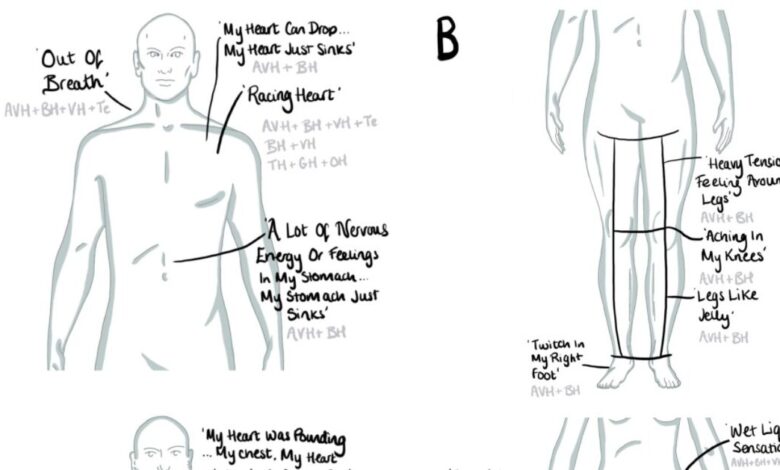
Example of participant annotations, used to create novel but simple multimodal unusual sensory experience (MUSE) body-maps. Credit: University of Leicester
Health United KingdomNew Study Helps Psychologists Understand Hallucinations Better
At the University of Leicester, in the United Kingdom, a team of psychologists generated body maps of the sensations experienced during hallucinations, a useful tool for people suffering from psychosis that helps them to share their experiences when words fail.
“We designed a study and developed the novel but simple multimodal unusual sensory experience map method to investigate these features further,” says Dr Katie Melvin, of the Department of Neuroscience, Psychology and Behaviour at the University of Leicester. “The methods and outcomes of this study can contribute to advances on how we understand hallucinations and how we can support people who experience them.”
The group of individuals invited to take part in the study was asked to document all the feelings they experienced – for example, putting annotations on the drawing of a body representing the sensations and feelings that occurred during a psychotic episode – a week prior to the interview each of them needed to do with the researchers. Every hallucination can comprise multiple senses, emotions, and feelings – such as pain, heat, or tension. It is the most extensive descriptive data ever collected in the field. Within the study, the researchers also studied emotions related to hallucinations, including confusion, fear, and frustration, which are the most common ones.



